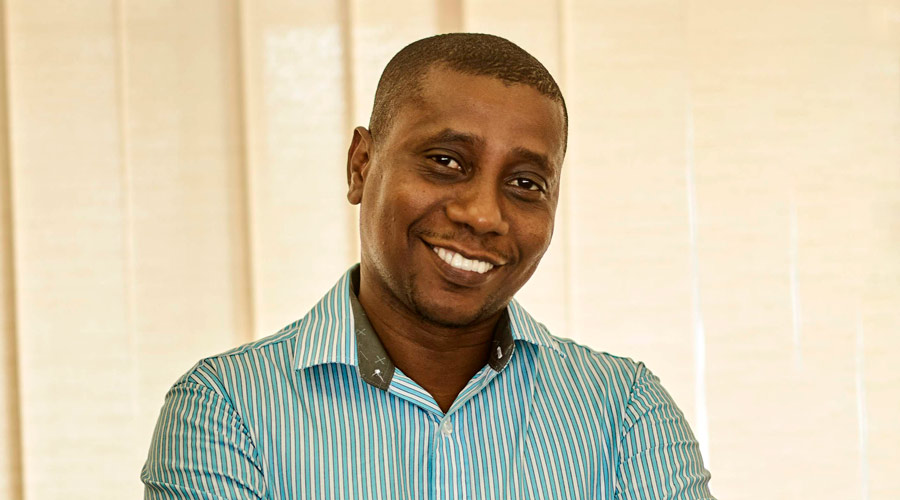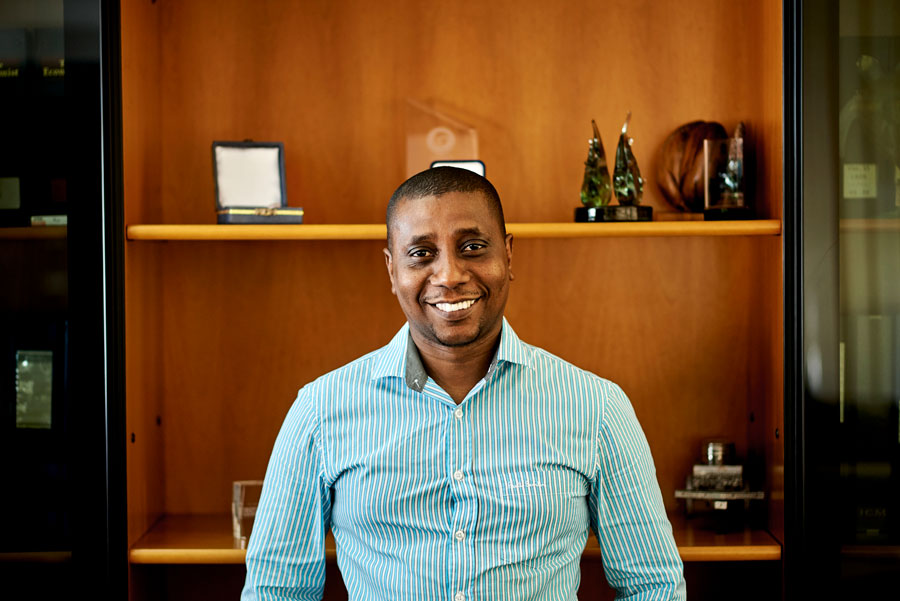
The Seychelles Financial Authority is Seychelles’ regulator for non-bank financial services, a key sector for the island nation’s diversifying economy. Due to Seychelles’ position as a gateway between Africa and Asia, its dozens of double-taxation agreements with countries including China and a wide range of products for investors, Seychelles represents an increasingly attractive jurisdiction for Asian businesses. Here the FSA’s CEO, Dr Steve Fanny, explains new innovations in the financial services sector and how Chinese investors expanding into Africa can maximize returns in Seychelles.
You were appointed CEO of the Financial Services Authority in December 2017. What are your key objectives?
We believe that Seychelles has the international financial services potential, but that Seychelles needs to do more in terms of leveraging itself and putting forth a value proposition. We need to communicate what we offer in terms of structuring, financial services, and what international products we can offer to companies. At the same time, we need to make changes in the industry. In the past, we’ve been very dependent on the Seychelles International Business Company (IBC), a type of offshore corporation. But I think it is time for Seychelles to revamp its current legislation when it comes to the Seychelles Special License Companies (CSL) and the Collective Investment Scheme. We need to embrace a new philosophy that works alongside the innovations in the financial service industry, such as fintech. Seychelles is already attractive but once we update legislation, the second phase will be letting people know that Seychelles is a strong jurisdiction.
How competitive is the Seychelles’ jurisdiction now compared to others such as Mauritius?
Seychelles is unique, and we cannot necessarily compare to other countries such as Mauritius because we don’t have the same business or product portfolio. When it comes to Mauritius, I think we need to work together to compliment what we both have. In terms of our competitiveness, it is good, but I think we can do better. Fundamentally, Seychelles needs to be more visible. Coca-Cola spends millions of dollars just to be on TV. They do it because so people know that the product is there, and that it’s relevant to them. This is what Seychelles needs to do.
What strong products does Seychelles have to offer?
Seychelles can talk about the International Business Corporation (IBC), which is used for structuring. We can also talk about the Special License Company (CSL), which lets investors take advantage of the more than 35 double-taxation agreements that Seychelles has with different countries, including China. This is what we always discuss in China. Seychelles is on the way from Asia to Africa, and a Chinese company wanting to go into Africa can use these double-taxation agreements to get better deals in Africa, a preferable rate and hence the best return. Seychelles can position itself quite well in those terms. We have products, we have funds, and investors can also use products that full under the collective investment scheme. I think the next phase also is for us to go into Africa and explain to people how they can use the funds and other products. Given the economic reality of Europe, I think most jurisdictions are now thinking of working with Asia and Africa. It is pragmatic. Africa and Asia are the fastest growing economies and you need to position yourself in the areas where there is growth.
Last year FSA was present at the China Offshore Shanghai Summit. What feedback has there been to Seychelles promoting itself as a jurisdiction?
We have conducted a lot of roadshows in China. At one time in China, the IBC was synonymous with the British Virgin Islands, but today the Chinese know that the international business company concept is also being offered by jurisdictions like Seychelles. Seychelles has a very good image in China, but we must continue to nurture it and capture the imaginations of the Chinese people. At the roadshows we give very practical presentations about how to address certain issues. For example, “Mr X has a company in China, and he wants to go to Africa,” and we explain the options and how Seychelles can be a solution. People were very receptive to that, and the Chinese market has continued to grow in terms of our business. But we need to continue to have direct access to the Chinese market. It has more benefits at the end of the day because you can make personal connections and anyone interested can ask questions.

What can you tell us about recent innovations in the financial services sector?
Everyone knows that what is new and cutting edge today is fintech. We cannot run from it, so Seychelles has already developed legislation to regulate it. Once this legislation gets the green light and is adopted, Seychelles will probably be the first jurisdiction in Africa to offer a framework to regulate fintech activities. Seychelles already has one of the biggest companies in the world that deals with fintech, and many others that are already working in this direction. But they don’t yet have a regulatory framework, so this legislation will be very important.
What are your expectations for the timing of the legislation?
We hope that we can get it done in June because it has already been returned by a credible law firm, fintech experts in the field and partners in the UK and other jurisdictions. We’ve got the best of the very best to design our legislation. So once the regulation is signed by the minister and government, we are ready to go. We already have big companies who have been looking at the framework and are waiting to move in.
How else can Seychelles innovate and set itself apart in the financial services sector?
Islamic finance has been on the backburner for a while and now we are looking at it more seriously. I’m very passionate about Islamic finance because I’m a pragmatic person. It’s a question of money, but it is also noteworthy for its stability. In the 2008 financial meltdown, the Islamic community reported record growth, so I think we can learn from those principles and develop a Sharia-compliant product for Seychelles. Given our proximity to the Middle East, it makes sense and is another area we can leverage to bring growth and innovation to our economy. It is a huge sector to tap, and I think we have the right expertise because we already have people trained in it. I also understand the kind of infrastructure we need, so we just have to put it in place.
What is your assessment of the sector in terms of human resources and financial services expertise?
I believe in my fellow countrymen. It is true that in Seychelles sometime we might say that we lack capacity in certain areas. Why is it that we continue to lack the capacity? It is based on motivation. If you continue to give people the same products that they know really well, they won’t see a need to go abroad or study further. But if I tell them that they need a certain qualification to sell particular products, they will put forth the effort. The Seychelles has many people who are ambitious, easily trainable and who can stay on top of the products. People don’t learn in a vacuum, so we need to identify what we need, give them new products, new training and new markets and they will build the capacity.
What is your final message to the Chinese business community?
There are some jurisdictions which are now going to make the register of directors public. This is not something that the Chinese investors are very receptive to. So, Chinese investors need to be aware of the jurisdictions where the registers are confidential, and where they are being made public. In Seychelles, we still believe that we need to give investors a certain level of confidentiality and protection, and therefore their information will not be made public. Not only are we planning to modernize legislation, Seychelles has always been a platform and a gateway, and we have a portfolio of products that can provide them with an effective and efficient route into Africa and other Asian countries.